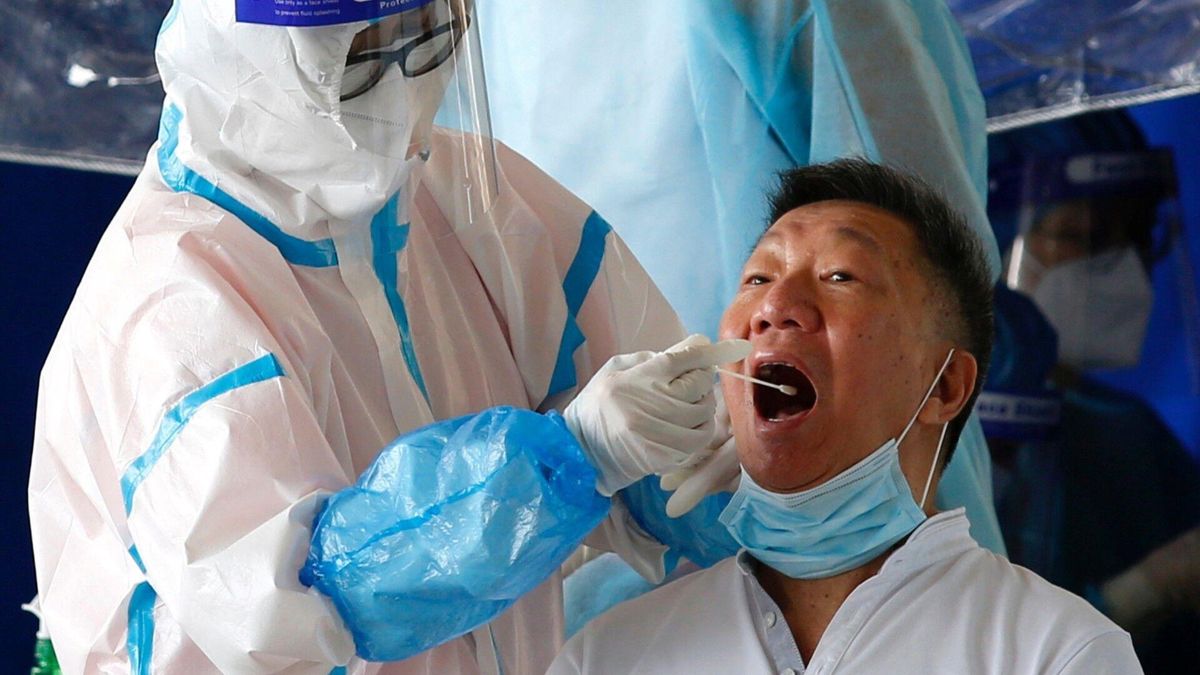Hong Kong launches mass testing for COVID-19, leading some to fear that their DNA may be stolen

A few minutes every morning is all you need.
Stay up to date on the world's Headlines and Human Stories. It's fun, it's factual, it's fluff-free.
Many critics have questioned where their data will end up, fearing that their DNA may be collected and shared with Beijing.
On Tuesday September 1, Hong Kong initiated a universal COVID-19 testing program amid boycott calls from some of the city’s activists and medical professionals.
Residents can receive testing in any one of 141 sites across the city that are being used to offer the free, voluntary COVID-19 tests to residents of the city.
As of August 31, more than half of the testing centers were completely booked for the first day of the program with the authorities hoping to examine the majority of Hong Kong’s 7.5 million residents within two weeks in an attempt to halt the city’s “third wave.”
During this wave, Hong Kong’s caseload more than tripled.
But the initiative, which is being carried out alongside China’s central government, is raising concerns that it may be offering insight into the public’s deep distrust of the Chinese government.
Earlier this month, Pro-democracy lawmaker Shiu Ka-chun posted on Facebook claiming that a detainee at Lo Wu Correctional Institution stated that another inmate had been sent to solitary confinement after refusing to be tested.
“She was sent to solitary confinement where there are no TV, books, biscuits or radio. It equates with an alternative punishment. But she didn’t do anything wrong, except not participating in the ‘voluntary testing’,” said Shiu.
Many critics have questioned where their data will end up, fearing that their DNA may be collected and shared with Beijing. The fears of mass DNA harvesting have led some to believe Hong Kong might introduce a mandatory health code system similar to that used on the mainland.
Early in its COVID-19 outbreak, China began using health codes based on location data provided by its mobile service operator.
When residents entered their phone numbers into an app, it generated a list of all of the cities the user has visited for more than 24 hours over the previous two weeks.
However, such a system is bound to leave some in the dust. The system is dependent on citizens’ access to a phone, which can be detrimental for many older residents or those who err away from technology.
Hong Kong officials have insisted that they do not intend to adopt a permanent health code system within the city.
Hong Kong Chief Executive Carrie Lam urged the public to take part in the voluntary project, stating that it is everyone’s “civic responsibility” to get tested. Lam also accused critics who oppose the effort of trying to sever Hong Kong’s relationship with China’s central government as well as cited the ability to book online as a way to avoid the lines that could form outside of testing centers.
“The so-called experts, doctors or members of the public kept finding excuses to stop citizens from participating in the test … There is only one intention behind this: political calculation,” said Lam, “They are smearing the central [Beijing] government and it’s an effort to sever Hong Kong’s relations with the central government.”
Lam continued to add that the objective of the mass testing scheme was to identify asymptomatic carriers as early as possible by screening out those infected, and insisted that the test was entirely voluntary.
As of September 7, Hong Kong’s mass testing had reached 856,000 people and identified 16 people infected – of which 4 were already on the government’s radar.
So far, testing has reached nowhere near officials’ early prediction of five million tests.
In an interview with local broadcaster RTHK, Ivan Hung, Head of the Infectious Diseases Division at Hong Kong University, stated that at least one million people would need to be examined before experts could truly assess the number of asymptomatic cases in Hong Kong.
Some doubt the claims by city authorities that testing isn’t mandatory, pointing to companies across Hong Kong that have begun forcing their employees to take part in the testing.
On September 13, Tsuen Wan District Councillor Roy Tam said he had received around two dozen complaints from people who had been ordered by their work to participate in testing, saying, “The government’s so-called ‘voluntary’ testing has now transformed into compulsory testing for some occupations.”
Tam said that one man, who worked at a trading company, declared that he had failed his probationary period with the firm due to his refusal to participate in the free test.
Have a tip or story? Get in touch with our reporters at tips@themilsource.com




Comments ()